
Introduction
The Breguet Br.693 series was, arguably, the best ground attack aircraft, and one of the finest French attack aircraft, of the second world war. Designed in 1934 in response to a twin-engined fighter specification, that was eventually won by the Potez 630, it languished for three years, until the Armeé de le Air eventually decided it needed ground attack aircraft, and the design was revived. The first version to be ordered, was the Br.691, with a 20mm cannon, two 7.5mm machine guns, and an internal rack of eight, 50lb bombs. The Br.691 was powered by two 700hp Hispano-Suiza 14AB10/1 engines.
The Br.691 was adequate, but improvements to the design were quickly identified and production soon moved to the Br.693, which substituted the unreliable, and difficult to maintain, Hispano-Suiza engines for Gnome & Rhone 14m-6 radial engines, which increased the top speed to 300mph.
In 1938, with war looming, and expecting the prospect of another great war of attrition with Germany, similar to World War I, France decided that all aircraft should seek to share engines with British and American designs to simplify long term logistics and supply. This led to an order to re-engine the Br.693 with the Pratt and Whitney R-1535 Wasp Junior. Despite their higher power output on paper, the larger engines lead to increased drag, that in effect reduced performance of the resulting design to below that of the Br.693. The resulting design was designated the Br.695.
In all, a total of around 400 Br.692 AB2 and Br.693, and only eight Br.695s were built before France was overrun by the German forces.
The Vichy forces operated a small number of Br.693 and Br.695. A few were also transferred to the Regia Aeronautica and used as trainers.
The Kit
この記事は Scale Aircraft Modelling の May 2020 版に掲載されています。
7 日間の Magzter GOLD 無料トライアルを開始して、何千もの厳選されたプレミアム ストーリー、9,000 以上の雑誌や新聞にアクセスしてください。
すでに購読者です ? サインイン
この記事は Scale Aircraft Modelling の May 2020 版に掲載されています。
7 日間の Magzter GOLD 無料トライアルを開始して、何千もの厳選されたプレミアム ストーリー、9,000 以上の雑誌や新聞にアクセスしてください。
すでに購読者です? サインイン
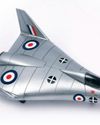
Mustard
BAC's Low Speed Research Vehicle
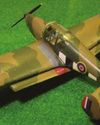
KOVOZAVODY PROSTEJOV (KP) 1 Was Monty's Triple'
Brian Derbyshire
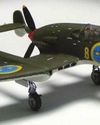
SPECIAL HOBBY SAAB J-21A Review
From the late 1930s and early 1940s, with thewar in Europe raging around them andedging ever closer to its borders, the Flygvapnet had ordered Seversky P-35A aircraft, alongside Vultee Vanguards, but only sixty of the former and none of the latter were received.
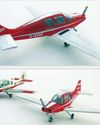
VFR MODELS Beagle B.121 Pup
This is the first 3D printed kit I have come across and it is really rather fine.
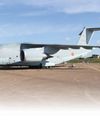
Hearts in the sky RIAT RETURNS
After a nearly three-year hiatus RIAT returned to our skies with a hot show in every sense of the word. SAM’s Mike Verier and Ray Ball were there.
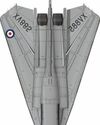
Colour Conundrum
A Cancellation Conundrum - The RAF F-111s That Might Have Been Part 1

COPPER CAUDRON Caudron G.Ill in 1/32
Copper State Models have carved a name for themselves in the last few years producing high quality plastic kits of World War One subjects.
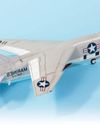
Academy RF-8A Crusader Conversion in 1/72
USMC squadron VMCJ-2 used six RF-8As during the Crisis (designation F8U-1P until September 1962), with others held in reserve, two flying out of Guantanamo Bay, and four out of NAS Key West.
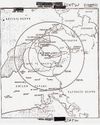
The Cuban Missile Crisis
Modelling US reconnaissance assets in 1/72 Part 2: The Nuclear Confrontation
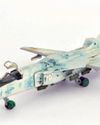
UKRAINIAT striker
The Sukhoi Su-24 is an all-weather attack aircraft capable of supersonic speeds and characterised by its side-by-side pilot/navigator seating and its variable geometry wing.